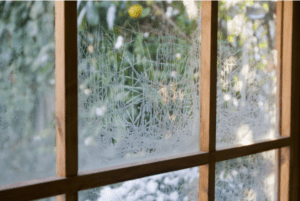Glass
With insulating glass, you save on your energy costs. It is, therefore, important that you have your outdated glass replaced with insulating glass. On this page, you will find more information on types of glass, energy savings through glass and tips to help you find the best glass specialist for your project.
Glass prices
Are you going to buy new glasses? It doesn’t have to be expensive at all. The price depends on the type of glass you choose. Better insulating glass is more expensive, but it does reduce energy costs. Check out the comprehensive glass prices.
| Type of glass | Average price per m², incl. vat, and installation | Annual cost saving for a house with 20 m² of glass |
|---|---|---|
| Isolation glass | £ 125 | £ 140 |
| HR+ | £ 135 | £ 220 |
| HR++ | £140 | £260 |
| HR++ | £190 | £280 |
Find the best specialist for your project and get free quotes.
Start
Kinds of glass
What glass you use has a big impact on your energy bill. In the cold winter, outdated glass does not keep the heat in. Want to save money on your energy costs? Then get good insulating glass. Ask a glazier before you buy insulating glass. After all, there are many different types of glass. The range extends from single- to triple-glazing. The insulating value of glass is expressed in the U-value. The lower the U-value, the better the insulating effect.
| Type of glass | Isolation value (U-value) |
|---|---|
| Single glass | 5.8 |
| Isolation glass | 2,8 |
| HR+ | 1.6 |
| HR++ | 1.1 |
| HR++ | 0.5 |
There is a huge difference in insulation value between single glass and HR+++. Single-glazing with a U-value of 5.8 hardly insulates at all. HR glass with a U-value of 2.0 insulates reasonably well. Do you want glass that insulates well? Then go for HR++ or HR+++ glass. Of course, these types of glass are more expensive to buy. HR+++ glass costs, on average, £ 170, including installation. This investment will pay for itself in the long run. You will save up to £ 280 on your energy bill every year. Would you like to know more about glass types? Read a detailed description of all options below.
Single pane glass
Single-pane glass hardly insulates at all. Prices start from £15 per m². This type of glass is used almost exclusively indoors these days, for example, in interior doors, shower doors and kitchen backsplashes. Due to its poor insulation value, single-glazing is less suitable for window frames. Because it lets a lot of heat through, energy costs quickly increase.

Isolation glass
Standard double glazing has moderate insulation properties and costs an average of £115 per m², including installation. Standard double-glazing has an insulating effect thanks to the air between the two panes of glass. It provides about 50 per cent less heat loss than single glazing.
HR+ glass
HR+ glass insulates well and costs, on average, £125 per m², including installation. This consists of two panes of glass separated by a cavity. With HR+, HR++ and HR+++ glass, this cavity is filled with argon gas. This gas insulates better than the dry air in insulation glass.
HR++ glass
HR++ glass is the most popular in the Netherlands. This glass insulates even better than HR+ glass because of the metal layer on the inside and costs, on average, £130 per m², including installation. It has the best price/performance ratio.
HR+++ glass
In conclusion, of all types of glass, HR+++ glass insulates best. It costs, on average, £ 170 per m², including installation. The glass consists of three glass panes and therefore has two cavities. Do you want the best insulating windows? Then opt for HR++ glass.

Saving energy costs
With HR++ glass, you will save up to £250 a year. The table below assumes this type of glass when calculating average prices and associated annual energy bill savings. Check out the prices for various housing types below.
| Home type | Window area in m² | Average total price HR++ glass and glazier | Average savings per year |
|---|---|---|---|
| Apartment | 15 m² | £1.800 – £ 2,200 | £ 200 per year |
| Tween apartment | 20 m² | £ 2,500 – £ 2.800 | £ 250 per year |
| Corner House | 30 m² | £ 3,500 – £ 4,000 | £ 300 per year |
| 2 under 1 roof | 35 m² | £ 4,400 – £ 4.900 | £ 400 per annum |
| Detached house | 50 m² | £ 6,500 – £ 7,000 | £ 500 per annum |
Do you have a terraced house? And do you have your outdated glass replaced with HR++ glass? You will have earned back your investment after 10 years. The glass keeps warm air in during winter and keeps your home nice and cool during summer. So you don’t have to use the heating or air conditioning as often, saving a lot of energy and money.
Thickness of glass
The specialist who comes to take your measurements will always note the window thickness in three numbers in millimetres. HR+ and HR++ have a thickness of 5 plus 15 plus 4 millimetres. Here, the 5 millimetres is the thickness of the outer glass, the 15 millimetres is the thickness of the cavity and the 4 millimetres is the thickness of the inner glass. HR+++ glass has a total thickness of a minimum of 40 to a maximum of 50 millimetres.

Functions of glass
In addition to its insulating properties, double glazing also has other uses. Some forms of double glazing are sunproof, soundproof, fire-resistant or burglar-resistant. Read more about these functions below.
| Function | Price per m² excl. installation | Properties |
|---|---|---|
| Solarproof glass | £80 | Solarproof glass allows up to 60% less heat to pass through than normal double glazing. |
| Soundproof glass | £ 60 | Soundproof glass holds back up to 70% more sound than normal double glazing. |
| Fireproof glass | £ 160 | Fireproof glass can withstand a blaze for a minimum of 30 minutes up to 2 hours. Normal double-glazing breaks after only 4 – 5 minutes. |
| Burglar-resistant glass | £100 | The strongest glass can withstand up to 70 axe blows. Foil fused between 2 panes of glass gives the glass its strength. |
Solar-resistant glass
A square metre of solar control glass starts from as little as £80, excluding installation. Normal double glazing lets 90% of sunlight through. This makes for a bright room, but it also has drawbacks. Sunlight heats up your home, sometimes making the room warmer than desired. And nothing as annoying as sunlight reflecting off surfaces and blocking your view.
Solar-resistant glass contains a special coating that lets through up to 40 per cent less heat than normal double-glazing. On hot days, the air conditioning does not have to run as hard; in winter, the glass keeps the heat in. The disadvantage of sunproof glass is that it lets in 10% less light. Also, remember that solar control glass does not work like normal blinds.
Soundproof glass
A square metre of soundproof glass starts at £60, excluding installation, and keeps out up to 70% more noise than normal double-glazing. Useful if you live along a railway line or near an airport, for example. There are three ways in which glass can be made soundproof. Firstly, the cavity can be made wider. Second, double-glazing can block sound by giving both glasses a different thickness. This makes it less easy for sound vibrations to penetrate.
Fire-resistant glass
One square metre of fire-resistant glass starts at £160, excluding installation. Single glass breaks in the event of a fire as early as 30 to 40℃ temperature difference. This can happen in as little as 1 minute. Double glass often lasts for 4 to 5 minutes. If the glass breaks, the fire has a chance to spill over. Fire-resistant glass makes it possible to hold back flames for at least 30 minutes. There is even glass available that stops fire for up to 2 hours.
Remember that fire-resistant glass cannot be fitted in every window frame. You will need special fire-resistant frames for fire-resistant glass.
Burglar-resistant glass
One square metre of burglar-resistant glass with extra-strong film can be purchased for £100, excluding installation. Burglar-resistant glass is a form of laminated glass. Fusing several sheets of glass, with a strong film layer in between, creates burglar-resistant glass. The glass is harder to destroy. The strongest burglar-resistant glass can withstand up to seventy axe blows.
Another type of burglar-resistant glass is wired glass. Wired glass is cheaper than laminated glass and contains a metal wire construction. This metal wire makes the glass burglar-resistant. Looking for even stronger glass? Then go for plexiglass. Although this is not real glass, it is stronger and more impact-resistant than glass. The disadvantage of plexiglass is its susceptibility to scratching.
Security glass
Want extra protection on your balcony, balustrade or window, for example? Then take safety glass. Here, you can choose either toughened or laminated glass. Laminated safety glass contains a foil layer that prevents the formation of sharp pieces of glass in the event of a breakage. Toughened safety glass is glass that has been heated to 600 ℃ and then cooled down at an accelerated rate. In the event of any breakage, the glass disintegrates into small grains. These small grains reduce the risk of serious injury.

Glass specialist
Would you like to buy new glass and have this glass installed? Experts will be happy to help you with this. The specialist will give you tailored advice on the right glass for your home. So you can be sure that the new glass meets your requirements. The specialist removes the old glass and installs the new glass the same day.
Would you like to be sure you are dealing with HR, HR+ or HR++ glass? Ask the glass specialist about the KIWA quality mark. KIWA-Netherlands checks the insulation value of glass. Well-insulated glass, therefore, bears the KIWA quality mark.
Tips for buying glass
Hopefully, you now have a clear picture of the different types of glass. Now it is time to decide which specialist you are going to hire. Check out these tips so you know what to look out for.
Choose a glass specialist in the area.
From the moment the specialist drives away, they charge a call-out fee. However, most glass specialists do not charge a call-out fee within a radius of 25 kilometres. Good for the environment and your wallet.
Quantity discount
Are your neighbours also interested in a glass specialist? By having several projects carried out at the same time, you pay the call-out fee only once and thus save on the total cost.
Examine the quotes and compare them critically
Examine the following critically:
- Costs: Compare costs by requesting glass quotes from several companies. In addition, use reviews to find out the quality against the cost. This will help you find the best value for money. You can also ask the specialist about this. Some work can easily be carried out yourself. This saves the glass specialist time and money.
- Guarantee: It is important to determine how long your glass is guaranteed. On average, this is around 10 years.
Find the best specialist for your project and get free quotes.
Start